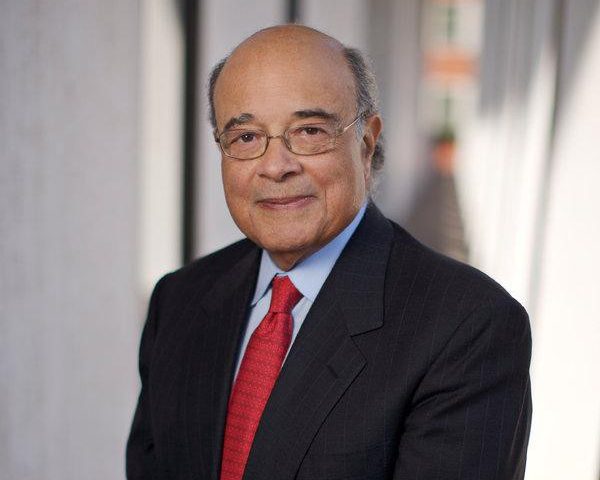Dr. Adel Mahmoud helped usher in a combination vaccine against measles, mumps, rubella and chickenpox as well as one to prevent shingles. Credit: Princeton University, Woodrow Wilson School of Public and International Affairs.
Adel Mahmoud (August 24, 1941 – June 11, 2018) was an Egyptian-born American doctor and expert in infectious diseases who played a vital role in the development of lifesaving vaccines, died, aged 76, on June 11, 2018 in Manhattan. His death, at Mount Sinai St. Luke’s Hospital, was caused by a brain hemorrhage, according to his wife Dr. Sally Hodder. Dr. Mahmoud was a charismatic mentor to many of today’s leaders in medicine and research.
Dr. Mahmoud received his medical degree from the University of Cairo in 1963 and a doctorate in 1971 from the London School of Hygiene and Tropical Medicine. His early research focused on pioneering studies of the role of eosinophils, a specific type of blood cell that is involved in the defense against and control of schistosomiasis, a debilitating disease caused by a parasitic flatworm that affected millions, most notably children, in Egypt and other countries around the world. Committed to making a difference on a global scale, Mahmoud chose to emigrate to the U.S. in 1973 where he launched his long standing career at Case Western Reserve University. He rapidly rose through the ranks to head the Division of Geographic Medicine and ultimately to chair the Department of Medicine from 1987 to 1998. In the course of his academic career he was elected to ASCI, AAP, and the IOM ( now known as the National Academy of Medicine), and received numerous prizes and honors. With Ken Warren and other collaborators, he wrote and edited the definitive textbooks of tropical diseases, and published landmark papers in the fields of eosinophil biology and schistosomiasis.
As president of Merck Vaccines from 1998 until 2006, Dr. Mahmoud oversaw the creation and marketing of several vaccines that brought major advances in public health. One prevents rotavirus infection, a potentially fatal cause of diarrhea in babies. Another protects against human papillomavirus (HPV), which causes cancers of the cervix, anus, genitals and middle of the throat.
Dr. Mahmoud also helped usher in a combination vaccine against measles, mumps, rubella and chickenpox, and one to prevent shingles, the painful and debilitating illness that can develop when a previous chickenpox infection is reactivated.
Dr. Mahmoud retired from Merck in 2006 to begin yet another career as a Professor at the Woodrow Wilson School of Public and International Affairs and the Department of Molecular Biology at Princeton University. He also returned to CWRU as the Chair of the School of Medicine Visiting Committee, where his wit, advice, prodding, genius for problem-solving, and boundless optimism were highly influential and greatly appreciated. In 2017, an endowed chair was created in his honor that bears his name, and awarded to Dr. James Kazura in a ceremony that honored both Dr. Mahmoud the man and his incredible work and worldwide impact on global health and in raising the next generation of global health physicians and scientists. He will be greatly missed. A little of the light in the world has dimmed with his passing.
Dr. Mahmoud is survived by his wife of 25 years, Dr. Sally Hodder, a former faculty member at CWRU and chief resident in medicine, now a Vice Dean for Translational Research at the University of West Virginia, and a son, Jay Thornton.









